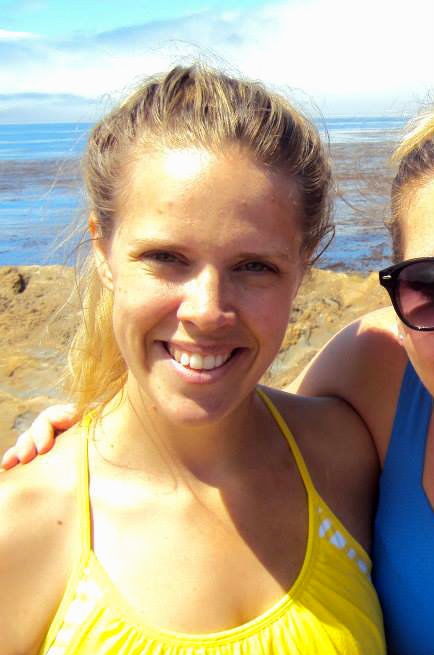A Brief History of Human Sex

Birds do it, bees do it, humans since the dawn of time have done it.
But just how much has the act really changed through the millennia and even in past decades? Are humans doing it more? Are we doing it better? Sort of, say scientists. But it's how people fess up to the truth about their sex lives that has changed the most over the years.
Humans have basically been the same anatomically for about 100,000 years—so what is safe to say is that if we enjoy it now, then so did our cave-dwelling ancestors and everyone else since, experts say.
"Just as our bodies tell us what we might like to eat, or when we should go to sleep, they lay down for us our pattern of lust," says University of Toronto psychologist Edward Shorter. "Sex has always offered pleasure."
Hard wired
Sexuality has a lot to do with our biological framework, agreed Joann Rodgers, director of media relations and lecturer at Johns Hopkins Medical Institutions.
"People and indeed all animals are hard wired to seek out sex and to continue to do so," Rodgers said in a recent interview. "I imagine that is evidence that people at least like sex and even if they don't they engage in it as a biological imperative."
It is nearly impossible to tell, however, whether people enjoyed sex more 50 years ago or 50,000 years ago, said David Buss, professor of psychology at the University of Texas and author of "The Evolution of Desire: Strategies of Human Mating" (Basic Books, 2003).
There is "no reason to think that we do more now than in the past, although we are certainly more frank about it," Buss told LiveScience.
Indeed, cultural restraints—rather than anything anatomical—have had the biggest effect on our sexual history, Shorter says.
"To be sure, what people actually experience is always a mixture of biological and social conditioning: Desire surges from the body, the mind interprets what society will accept and what not, and the rest of the signals are edited out by culture," he writes in his book, "Written in the Flesh: A History of Desire" (University of Toronto Press, 2005).
That's not to say that cultural norms keep people from exploring the taboo, but only what is admitted to openly, according to archaeologist Timothy Taylor of Great Britain's University of Bradford.
"The idea that there is a sexual line that must not be crossed but in practice often is, is far older than the story of Eve's temptation by the serpent," he writes in "The History of Sex: Four Million Years of Human Sexual Culture" (Bantam Books, 1996).
Modern advances
Religion especially has held powerful sway over the mind's attitude towards the body's carnal desires, most sexual psychologists agree. Men and women who lived during the pious Middle Ages were certainly affected by the fear of sin, Shorter said, though he notes there were other inhibiting factors to consider, too.
"The low priority attached to sexual pleasure by people who lived in distant times is inexplicable unless one considers the hindrances that existed in those days," Shorter writes. He points especially to the 1,000 years of misery and disease—often accompanied by some very un-sexy smells and itching—that led up to the Industrial Revolution. "After the mid-nineteenth century, these hindrances start to be removed, and the great surge towards pleasure begins."
Many historians and psychologists see the late 1800s as a kind of watershed period for sexuality in the Western world. With the industrial revolution pushing more and more people together—literally—in dense, culturally-mixed neighborhoods, attitudes towards sex became more liberal.
The liberalization of sexuality kicked into high gear by the 1960s with the advent of the birth control pill, letting women get in on the fun and act on the basis of desire as men always had, according to Shorter.
"The 1960s vastly accelerated this unhesitant willingness to grab sex for the sheer sake of physical pleasure," he said, noting that the trend of openly seeking out sex just because it feels good, rather than for procreation alone, has continued on unabated into the new millennium.
Global variations
But despite the modern tendency towards sexual freedom, even today there are vast differences in attitudes across the world, experts say.
"Cultures vary tremendously in how early they start having sex, how open they are about it, and how many sexual partners they have," said Buss, noting that Swedes generally have many partners in their lifetime and the Chinese typically have few.
An informal 2005 global sex survey sponsored by the condom company Durex confirmed Buss' views. Just 3 percent of Americans polled called their sex lives "monotonous," compared to a sizable 26 percent of Indian respondents. While 53 percent of Norwegians wanted more sex than they were having (a respectable 98 times per year, on average), 81 percent of the Portuguese were quite happy with their national quota of 108 times per year.
Though poll numbers and surveys offer an interesting window into the sex lives of strangers, they're still constrained by the unwillingness of people to open up about a part of their lives that's usually kept behind closed doors.
And what if we weren't bound by such social limitations? Taylor offers the promiscuous—and very laid-back—bonobo chimpanzee as a utopian example.
"Bonobos have sex most of the time ... a fairly quick, perfunctory, and relaxed activity that functions as a social cement," he writes. "But for cultural constraints, we would all behave more like bonobos. In physical terms, there is actually nothing that bonobos do that some humans do not sometimes do."
Explore More:
Get the world’s most fascinating discoveries delivered straight to your inbox.

